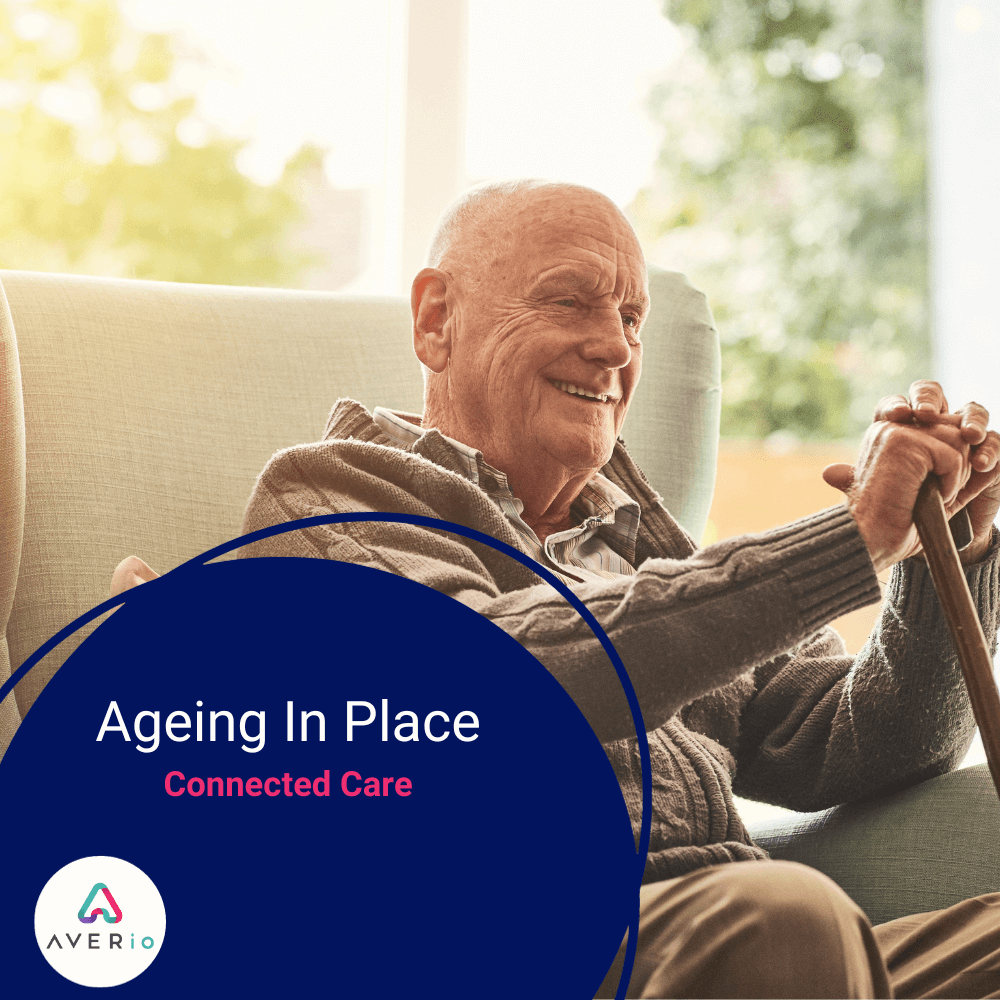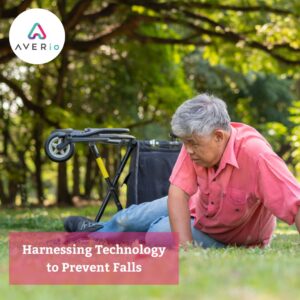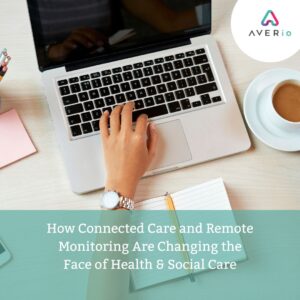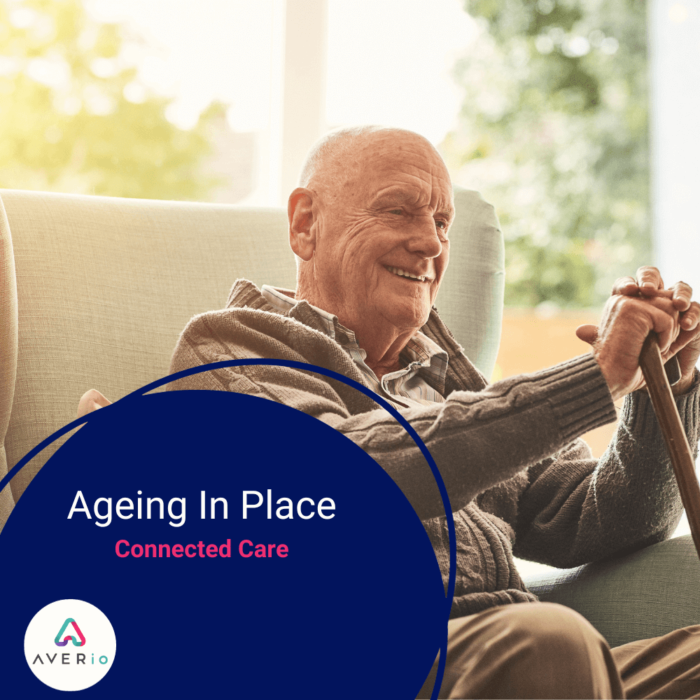
In the UK, the idea of “ageing in place,” or enabling people to live freely in their own homes as they age, is becoming more and more popular. The implementation of Connected Care home technologies is essential to bringing this idea to life. In this article we examine connected care in people’s homes for ageing in place from a UK viewpoint, as well as the advantages they provide and how they are influencing senior care in the future.
Enhanced Safety and Security
Seniors might feel safer and more secure with the help of connected care technologies. Smart doorbells equipped with motion sensors, door/window sensors and touchless fall detection sensors are just some of the examples of devices that can notify carers and residents of an unexpected activity or any security risks through intelligent platforms like AVERio.
Fall Detection and Prevention
Non wearable technology can recognise falls or abrupt movements and notify care teams or family members swiftly. This technology has a critical role in lowering the risk of falls-related injuries among the older population.
Remote Monitoring
Using a robust connected care platform, family members and healthcare professionals can remotely monitor a person’s wellbeing. Care teams can receive notifications about emerging changes in behaviour which might be an indication of a change in an underlying health condition, such as a developing UTI.
Home Automation & Assisted Living
People with mobility or dexterity concerns can improve accessibility within their home with the help of smart home automation systems, which can be configured to regulate lighting, heating, and other tasks. Integrating home automation and care monitoring into a single platform such as AVERio can significantly improve people’s quality of life and improve their independence.
Aging in Place and the NHS
The NHS acknowledges that smart homes can support ageing in place. By lowering hospital stays and A&E visits, the NHS can save money by incorporating smart home technologies into healthcare programmes and the wider health & social care system.
Obstacles and Things to Think About
Privacy and Data Security: When putting smart home technology into practice, safeguarding people’s privacy and making sure data is secure are top priorities. Providers of connected care platforms need to ensure systems and processes are built in a robust, secure and scalable way.
Cost
For some individuals, the upfront cost of some connected care solutions may be a barrier. The cost of connected care technologies is constantly changing and in most cases it is reducing gradually over time. Some simple wellbeing solutions can now be sourced for as little as £50 up front.
Adoption
Whilst connected care technology isn’t particularly new, it can be disruptive to people to introduce new technology and sensors into people’s home. It’s crucial that providers work to bring modern, aesthetically pleasing equipment to market that can be installed discreetly into homes.
Interoperability
A seamless user experience depends on the capacity of various systems and devices to communicate with one another. Modern systems use industry standard APIs and have the ability to integrate seamlessly, improving adoption amongst care teams and reducing change barriers.
To sum up, connected care for ageing in place is becoming more popular in the UK as a way to help people live better lives and deal with the issues associated with an ageing population. With the help of connected care platforms, people can live more independently and stay in their own home for longer.
Related Articles

Empowering Next of Kin: Technology’s Role in the NHS and Social Care.
In the National Health Service (NHS) and social care sectors of the United Kingdom, next of kin play an important role in supporting their loved ones’ well-being and care needs. Historically, this responsibility has been fraught with issues such as

Promoting Independence for Older People
As the population ages, the National Health Service (NHS) and the social care sector have become more aware of the importance of promoting independence for older people. Encouraging older people to keep their autonomy and self-sufficiency improves their quality of

Harnessing Technology to Prevent Falls: Advances in the UK NHS and Social Care
Falls among the elderly are a big concern for the UK’s National Health Service (NHS) and social care sector. Falls can have significant repercussions, including injuries, hospitalisations, and a decline in overall health and independence. However, technological breakthroughs provide intriguing

Overcoming the Digital Divide in Healthcare Access
The digital gap, defined as discrepancies in access to and use of digital technology, is a major topic in healthcare. Access to healthcare services and information in today’s digital era frequently relies on digital technologies and platforms. However, not everyone

How Connected Care and Remote Monitoring Are Changing the Face of Healthcare
With the introduction of telemedicine and remote monitoring technology, the healthcare environment is undergoing a revolutionary transformation. These cutting-edge solutions are transforming healthcare delivery, making it more accessible, easy, and efficient. In this post, we will look at how connected

Ensuring Data Security and Privacy in Health Tech Solutions
The widespread adoption of health-tech solutions such as electronic health records (EHRs), telehealth platforms, and wearable gadgets has proclaimed a new era in healthcare. While these advancements have many advantages, they also pose serious issues about data security and individual

